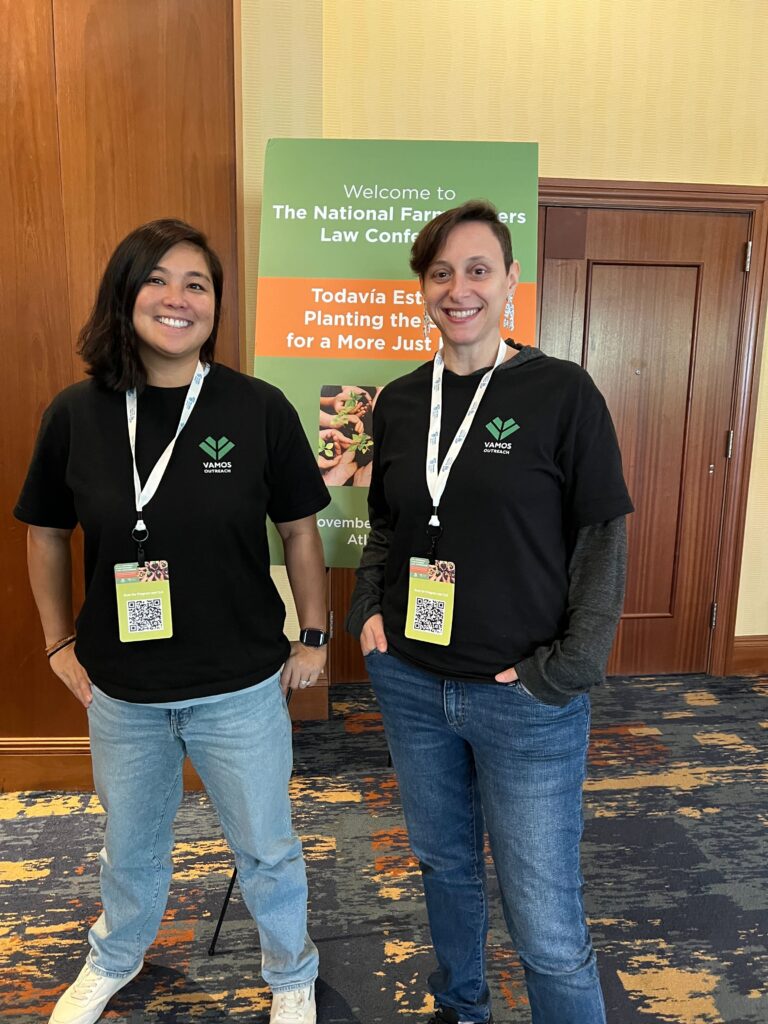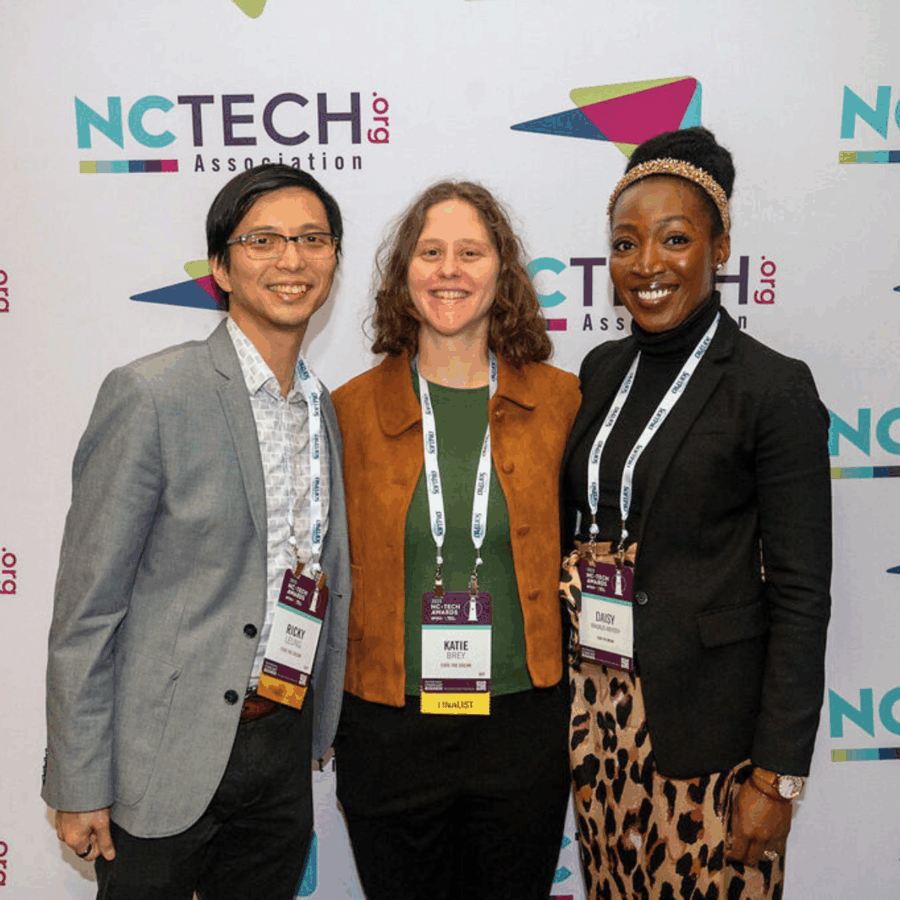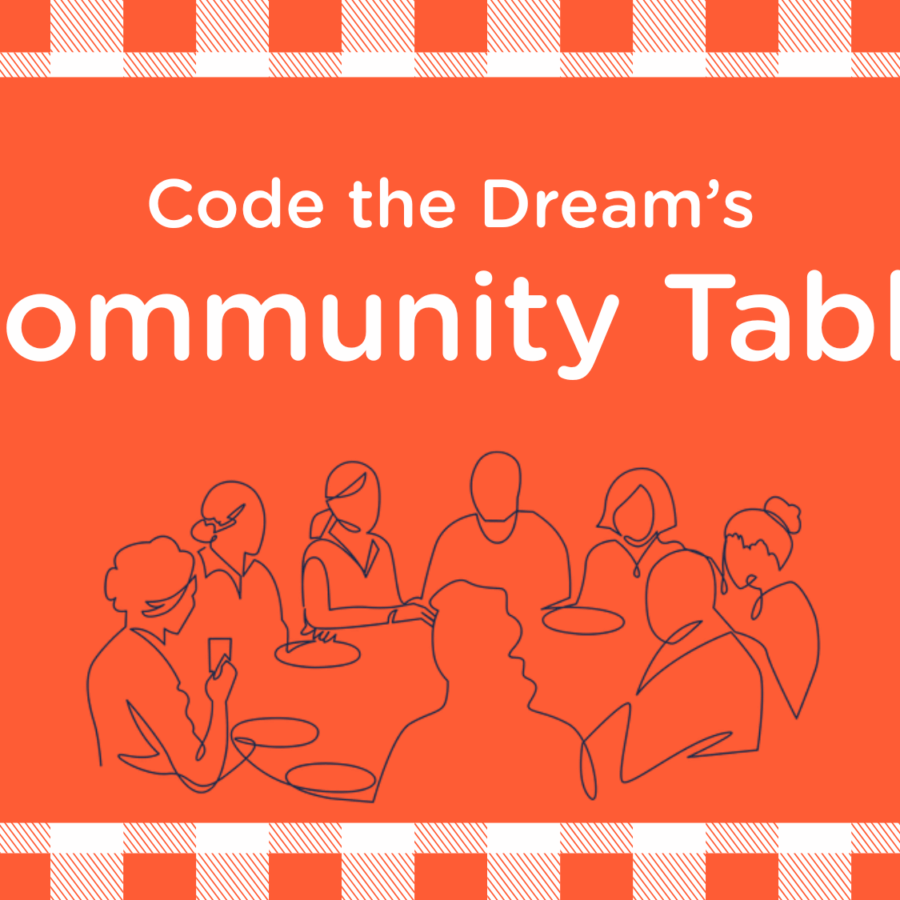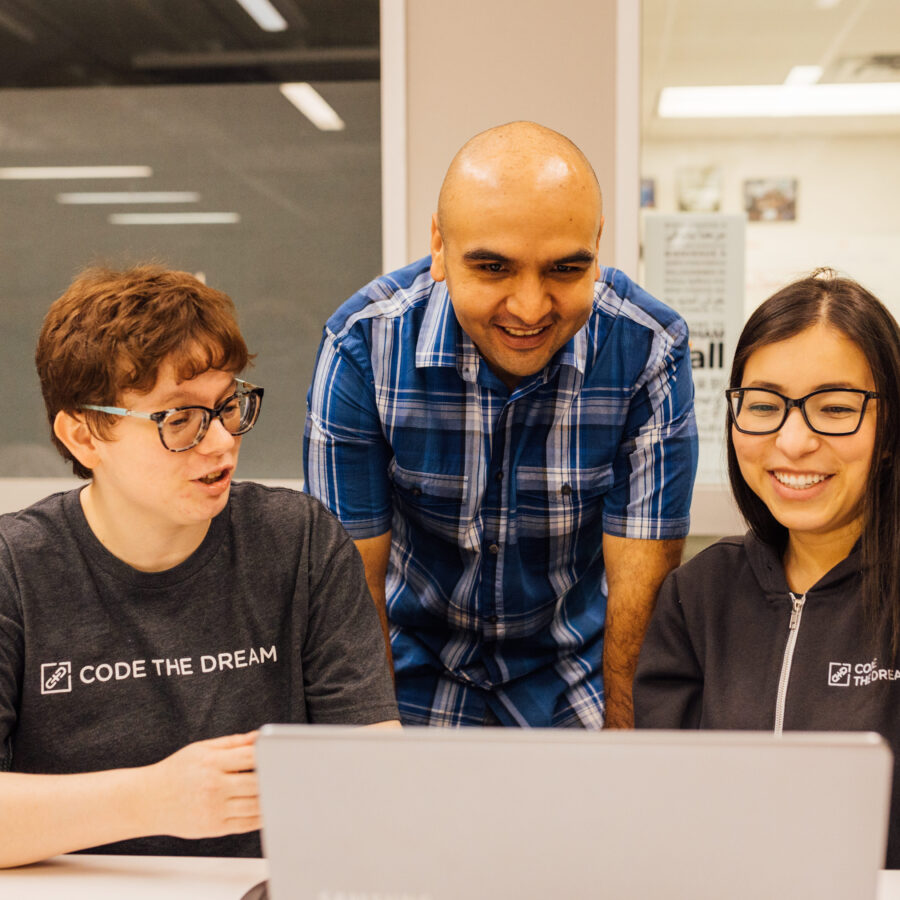Shaya Lyon and Kate Borgen represented Code the Dream and our Vamos Outreach App at the National Farmworker Law Conference November 13-15 in Atlanta. The experience, Lyon says, was inspiring and motivating.
“It was great to hear Vamos partners talk about how using Vamos has helped their organizations plan and track their outreach visits to migrant and seasonal farmworkers – and to hear them talking with folks from other organizations who were excited about what Vamos might be able to do for them,” Lyon says. “We want more organizations to know about Vamos Outreach, because we can see that it has such a positive impact on their work and their capacity.”

The conference is three days of presentations, panel discussions, and training sessions for the nonprofits and attorneys, paralegals, and outreach and administrative staff of non-profit legal aid organizations who provide legal aid to migrant and seasonal farmworkers. Borgen, Code the Dream’s UX/UI design lead, and Lyon, Vamos product/project manager, were there to meet with Vamos users in person, and to talk about the outreach app, used by many legal aid organizations, to new groups that might find it useful.
Vamos Outreach is a tool designed specifically for farmworker organizations to plan, track, and report on outreach to migrant labor camps. Farmworkers are some of the most vulnerable workers in the nation, facing poor wages as well as dangerous housing and health conditions.
Advocacy, health, and legal groups must visit farmworkers at their labor camps during the harvest season, since workers don’t usually have transportation themselves, don’t have access to local resources, and have few legal rights. However, because workers live in such rural and isolated areas, they can be very difficult to locate. Organizations spend a lot of valuable staff resources cobbling together spreadsheets, maps, and memories to put together outreach plans.
[Vamos] is the best thing we’ve done… it’s truly a wonderful tool.
Janellys santa, Legal Aid of Nebraska
Currently in use by 17 organizations in 14 states, Vamos provides a customizable repository for outreach maps, routes, notes, photos, and other information essential to the outreach workers providing support to migrant farmworkers. This year, those partner organizations used Vamos to conduct 10,735 worker interactions during 1,772 outreach visits to 1,585 camps. These visits – and the casework that follows – can ultimately lead to improvements in farmworker living and working conditions.
Janellys Santa, outreach coordinator and paralegal with Legal Aid of Nebraska, presented on her organization’s use of Vamos at the conference. During her presentation, titled “Empowering Small Teams: Strategies for Successful Agricultural Outreach with Limited Staff,” Santa said that Vamos makes it easy to take notes during and immediately after an interaction, to track information over time and staff turnover, and to export data and information for funders.
“Before, we were using spreadsheets,” Santa said during her presentation. “And it was a hassle because we were not getting all of the information we needed to keep track of… [Vamos] is the best thing we’ve done… it’s truly a wonderful tool.”
Santa shared that Legal Aid of Nebraska had used Vamos to track complaints about workers who were brought to the US to work for weeks, then taken back to Mexico without ever being paid. That is only one example of the type of situation for which a farmworker might require legal aid, Lyon says. Farmworkers have also been lied to about the crop they’re being hired to work with, and locked into the farm they are working on, unable to leave for groceries, medical care, or legal support.
I love making tools that people love to use – but I love even more the idea that software can help people feel seen.
Shaya Lyon, Vamos product manager
Vamos helps organizations plan, document, and report on their outreach efforts, helping outreach groups with a set of needs that is very specific to their work.
“Because we’re building this software specifically for farmworker outreach, we can design it in a way that supports exactly the kind of activities and data that are needed to do this work,” says Lyon. “Code the Dream is special, in that we choose to focus on building software for communities that don’t typically get this kind of support. To be able to make this software for the farmworker advocacy community – and to be surrounded by the people who use, or could use, this app, and to hear their excitement about it – was a really positive experience. We work hard on Vamos, and it was incredible to hear from so many people that it’s useful. I love making tools that people love to use – but I love even more the idea that software can help people feel seen.”
Another important aspect of the conference was meeting our Vamos partners in person, Lyon says.
“I’d been meeting with one of our partners over Zoom. We were working together to move historical outreach data from their spreadsheet into the Vamos database. When he told me the stories behind the data, it made it all come alive, even from one screen to another. It made it even more meaningful. And when we finally met in person at the conference, our collaborative energy exploded into huge smiles,” Lyon says. “Having these relationships means that we get to enjoy creating tools in close collaboration with the people who will be using them.”
Lyon says she felt buoyed after the conference, and later shared highlights of the conference with the Vamos software team. “I felt so lucky to be there,” she told the team. “It was powerful to be in the room with hundreds of kind, dedicated, pragmatic people who do such important, meaningful work. These are people who will make the most of even the smallest resource. I’m glad we can contribute to that in our way.”





